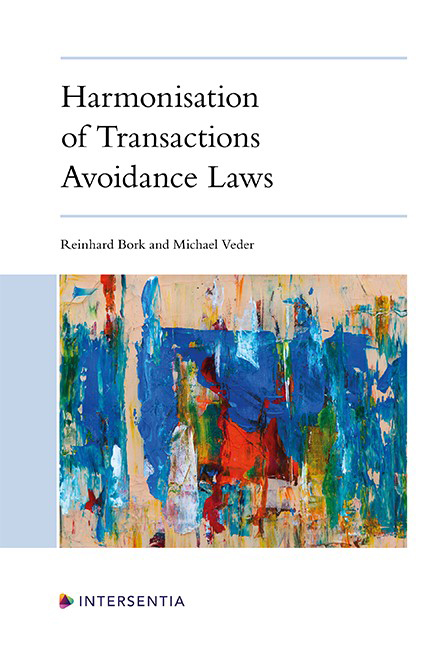Italy
Published online by Cambridge University Press: 26 May 2022
Summary
INTRODUCTION
The answers to this Questionnaire will be based on the recent “Code on Business Crisis and Insolvency Implementing Act 19 October 2017, No. 155” (Codice della crisi d ‘ impresa e dell ‘ insolvenza in attuazione della legge 19 ottobre 2017, n. 155 of 12 January 2019, No. 14), which will henceforth be abbreviated to “CCI ”. This Code will enter into force on 16 May 2022 (with the exception of a few regulations which have already entered into force), and will replace the “Regio Decreto” of 16.3.1942, No 267, commonly called “Legge fallimentare” (1942 Insolvency Statute).
As regards transactions avoidance law, the CCI has modified the 1942 Insolvency Statute to only a minimum extent. Nevertheless, some changes are remarkable. These could be summarised as follows:
a) the suspect period will be calculated from the date of application for opening insolvency proceedings instead of from the date of the Court’s decision which opened the proceedings (Art. 163, 164 and 166 CCI);
b) those immunities from avoidance which aim at facilitating restructuring distressed firms will be applicable to the actio pauliana as well (Art. 166.2, lett. d) and e), CCI);
c) the regulations on both shareholders ‘ and intra-group loans, which were originally laid down by the Civil Code only (Art. 2467 and 2497-quinquies of Civil Code), will be provided by both the Civil Code (Art. 2467 and 2497-quinquies Civil Code) and the CCI (Art. 292 CCI);
d) the claims for the reimbursement of both shareholders ‘ loans and intra-group loans will have to be satisfied in a preferential way (Art. 102 CCI), provided that the conditions laid down by Art. 99 and 101 CCI are met;
e) the temporal restrictions on avoidances, which had originally been conceived as mere procedural time-limits for bringing the action (Art. 69-bis of the Italian Insolvency Statute), seem to have been transformed into limitation periods (Art. 170 CCI), with the result that the new time restrictions could be extended by any form of suspension or interruption. However, here a caveat seems necessary. This is because the index and contents of the recent Art. 170 CCI are not as clear as those of the previous Art. 69-bis.
- Type
- Chapter
- Information
- Harmonisation of Transactions Avoidance Laws , pp. 953 - 982Publisher: IntersentiaPrint publication year: 2022

